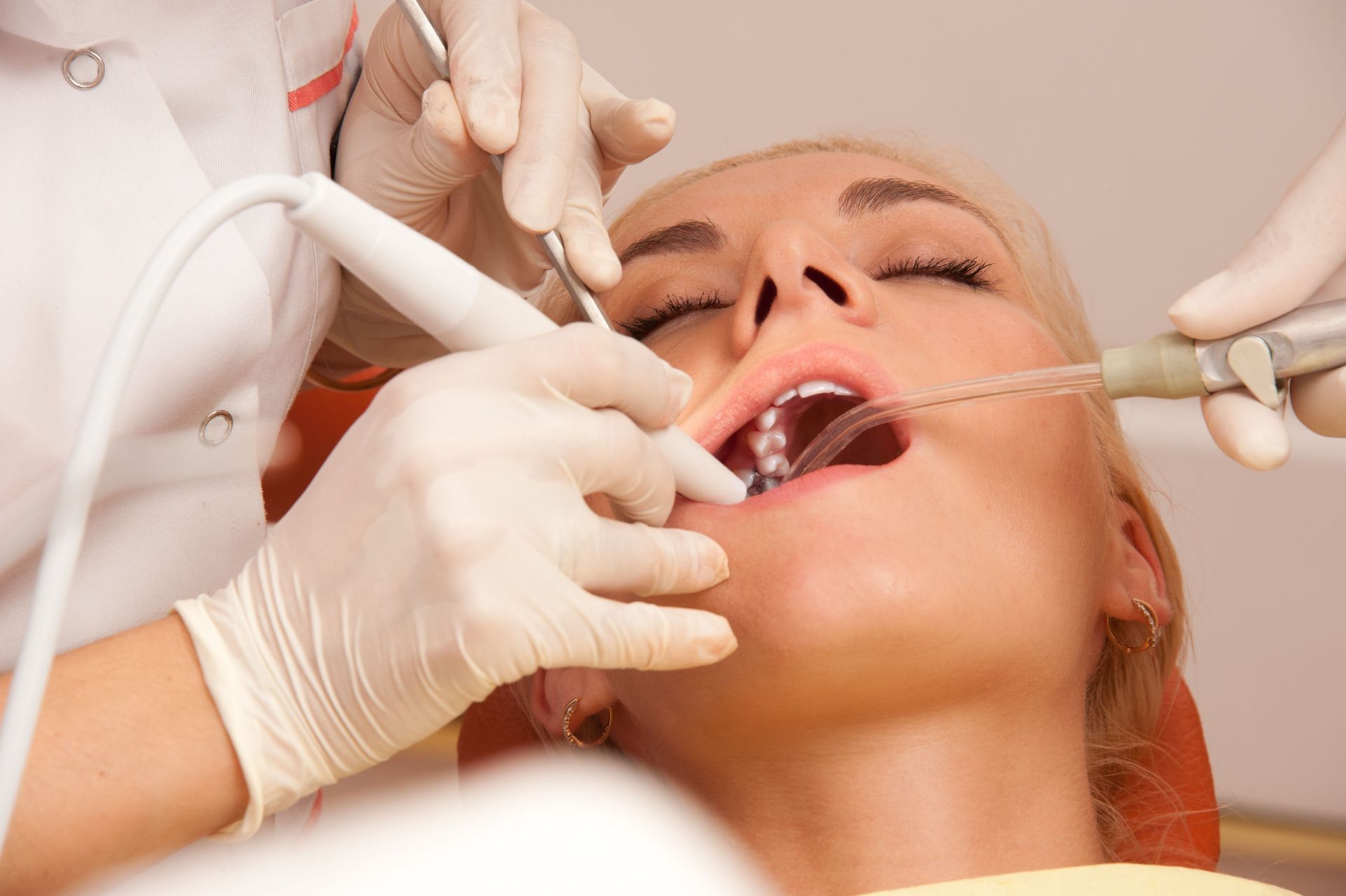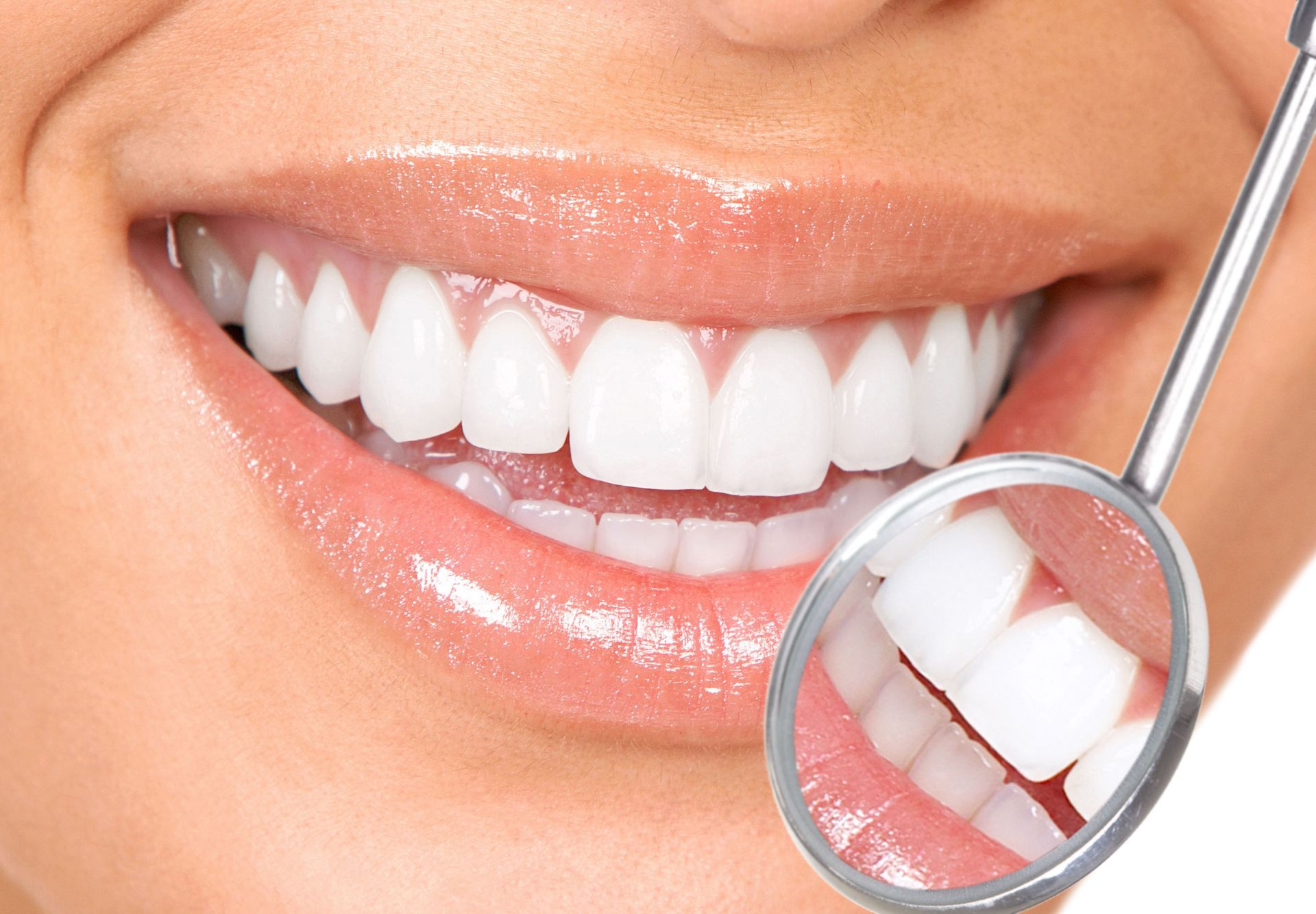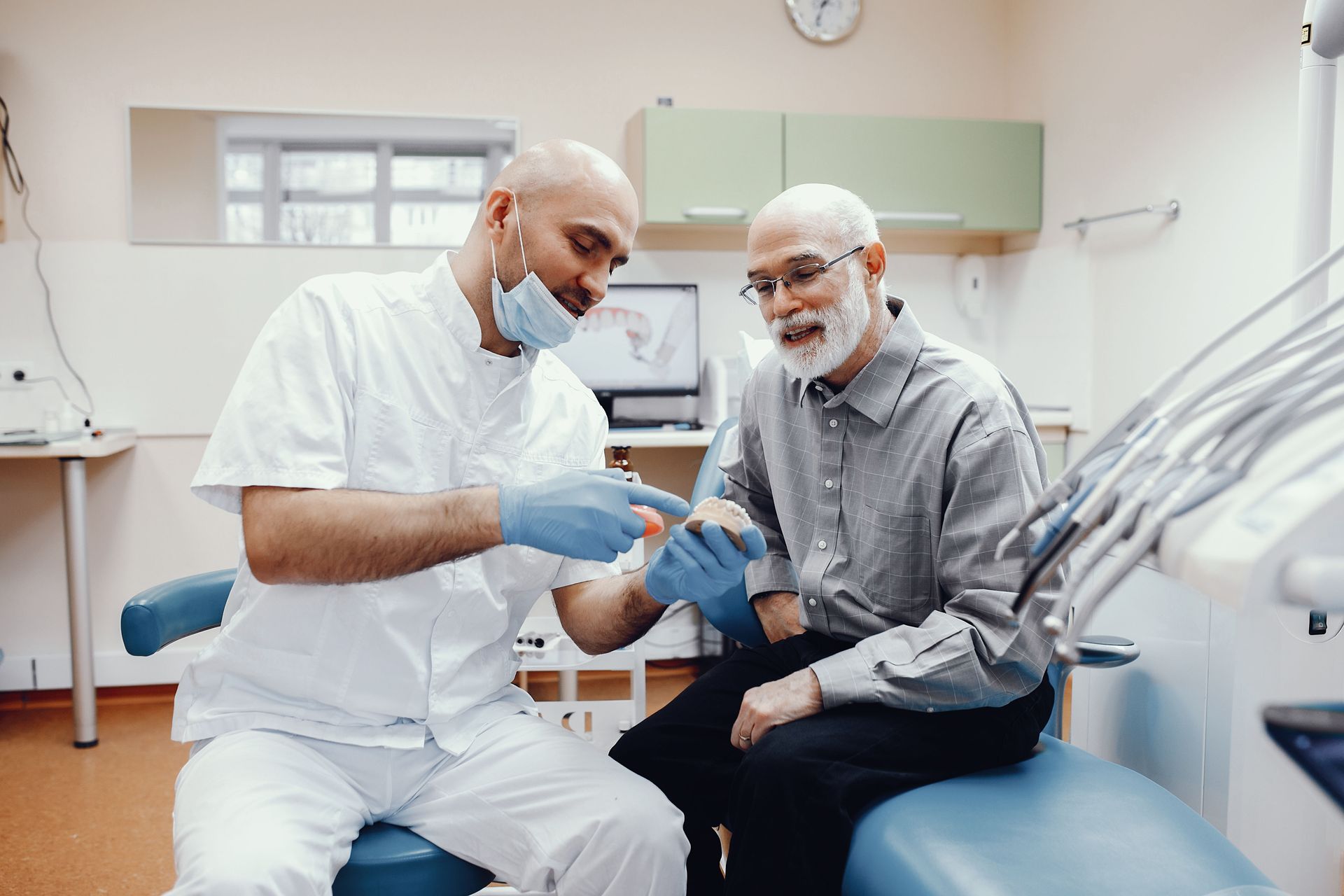Why you should have a cleaning at least two times a year
September 24, 2019
Why you should have your teeth cleaned at least two times a year:

Do you ever notice when you have gone too long in between brushing your own teeth or have gone too long between your professional teeth cleanings? Your teeth begin to take on stains more easily, it feels like it becomes harder to “get your teeth clean” when you brush on your own at home. The teeth feel more rough from all of the buildup. This is all caused by the bacteria you have in your mouth and your day to day activities, the foods you eat, and how well you are able to clean your own teeth on a daily basis in between your dental professional cleanings in our office.
We all have natural bacteria inside of our mouths and G.I. System. Every time you eat, any food that is left behind in your mouth it gets “eaten” or metabolized by the bacteria that are naturally found in your mouth. The bacteria secrete toxins and acids that irritate your gingival tissues and can cause your teeth to become demineralized (the start of decay). For the purpose of this blog topic, we are going to focus on the affects bacteria have on the periodontal tissues rather than tooth decay. The bacteria also secrete a multi-cellular matrix called "plaque" or "biofilm" that helps them stick together in a large group and stay stuck to your teeth. Think of it as them “building a home” in between and all over your teeth to keep them in place. It feels like a sticky film over the surface of your teeth that you can literally scrape off with your fingernail, a toothpick, a piece of floss, or a toothbrush. It is the physical action of brushing and flossing that removes this sticky plaque from your teeth and decreases the overall amount of bacteria left in your mouth. When that plaque has been undisturbed long enough, it becomes very hard or calcified (due to the calcium that is naturally found in your saliva). This is the point where we call it “calculus”. Calculus cannot be easily removed with a toothbrush or floss. You need special instruments or “scalers” as we call them in Dentistry to remove these calcified plaques (Calculus).
Some bacteria prefer or are able to live above the gum level where they are exposed to oxygen. A different breed or species of bacteria actually prefer to live below the gum line where there is little to no oxygen, these are called anaerobic bacteria. The bacteria that live below the gum line can also cause you to get buildup on the root surfaces of your teeth below the gum line. Guess what? Your toothbrush can never easily reach these surfaces of your teeth. A dental hygienist or dentist can reach these surfaces with the instruments we use during your cleanings. This is also the reason why you might hear us recommend a device like a Waterpik or Waterflosser. They actually propel water in a pulsating manner to dislodge biofilm and food that has accumulated below the gum level where your toothbrush is unable to reach and clean.
Your teeth are held in the bones of your jaws by what is called periodontal ligaments that extend in all directions from the teeth roots to the bone. Gum/gingival tissue is the pink tissue that covers the bone and circumferentially around the neck/root of every tooth. We call these tissues that support the teeth the periodontal tissue.
Gingivitis is when the gum/gingival tissues become red and inflamed due to the immune response of your tissues to these foreign invaders (bacteria) - it is an inflammatory reaction in response to the offending bacteria in your mouth. The more bacteria, the more plaque and stronger the inflammatory reaction of your body. The bacteria in your mouth secrets toxins and irritants, this is what causes your immune system to react as bacteria are “foreign” and not part of your body.
Gingivitis left untreated can progress to periodontitis or periodontal disease. Periodontal disease is initiated with the destruction of the surrounding bone due to the continued inflammatory reaction by your body to the ever present bacteria. When you loose enough bone around the teeth, they become loose because there is less hard tissue to support the teeth. All of the inflammation causes the gingival tissues to become puffy and less attached or loosely connected to the root surfaces of the teeth. This process actually allows more bacteria to inhabit the periodontal pocket around the teeth. If you have sat through a comprehensive periodontal evaluation in a dental office, you might be aware that we actually measure the health of periodontal tissues in a few ways. We measure how deep the pockets of tissue are around your teeth. 1-3mm is considered healthy. 4-6mm is considered earlier stages of periodontal disease. 7mm or greater is considered severe periodontal disease, it is at these stages that it becomes the hardest to treat you. Treating the disease in its earlier stages ensures the best outcome. We also measure how far the gumline has receeded from its normal position in what we consider healthy periodontal tissue.
Having regular cleanings throughout the year keeps bacteria and buildup (plaque and calculus) in check. It decreases the concentration of bacteria in your mouth. It gives your periodontal tissue time to heal from the inflammation caused by the offending bacteria and their toxins. It helps us look for any problems or potential problems before they get bad or begin to cause you pain. It also helps to keep your breath smelling fresh (who wouldn't appreciate that?). Additionally, we use this examination time to do your oral cancer screening - again, earliest detection is the key to successful treatment outcomes.
Periodontal disease is fairly common in the United States. Truth (Tooth) be told, periodontal disease is preventable, it can be maintained, but most importantly, it can be avoided if you plan ahead and do your best work on a consistent basis when you go home from our office. The work you do and put in to cleaning your own teeth ensures your best chances for healthy gums and teeth over your lifetime. Don't rush when you brush! Flossing is an important in your home care regimen as it access surfaces your toothbrush bristles physically cannot reach (more on this topic in a future blog post to be continued). When you clean your own teeth, you will inevitably "miss a spot"...or three/more. That is where we come in as the other set of eyes, educated in identifying where you need extra help in reaching those hard to get to places on all surfaces of your teeth. Where you fall short on cleaning your teeth, we can help debride those areas of your mouth. You may sometimes be put on a more frequent cleaning appointment schedule than every six months, depending on how much difficulty you have in cleaning your own teeth or your susceptibility to developing periodontal disease. The average person benefits from having their teeth cleaned at LEAST every six months (or less) as most research shows. I always tell my patients, think of how your kitchen sink or bathroom would look if you cleaned it less than once every six months.
We hope you found this blog post informative, and as always, would love to hear your feedback for how to improve ourselves for your benefit. Please always feel free to use our office as your resource for all of your dental related questions and concerns.
Any topics you would like to hear more about, please give us your feedback for future blog posts! Please like and follow our social media accounts to stay informed of updates from our team and giveaways! We do a monthly gift card drawing for all of our active patients who support our Nurture Dental Health.
Facebook @NurtureDentalHealth
Instagram @NurtureDentalHealth
<---We have an active promotion for our Instagram followers, check us out here!
Twitter @Nurture_Dental
Thanks for stopping by our blog page!
Let our family care for your family. Stay informed, stay nurtured!
-Vanaeyah Tran, DMD, co-owner of the practice Nurture Dental Health and Dentist





